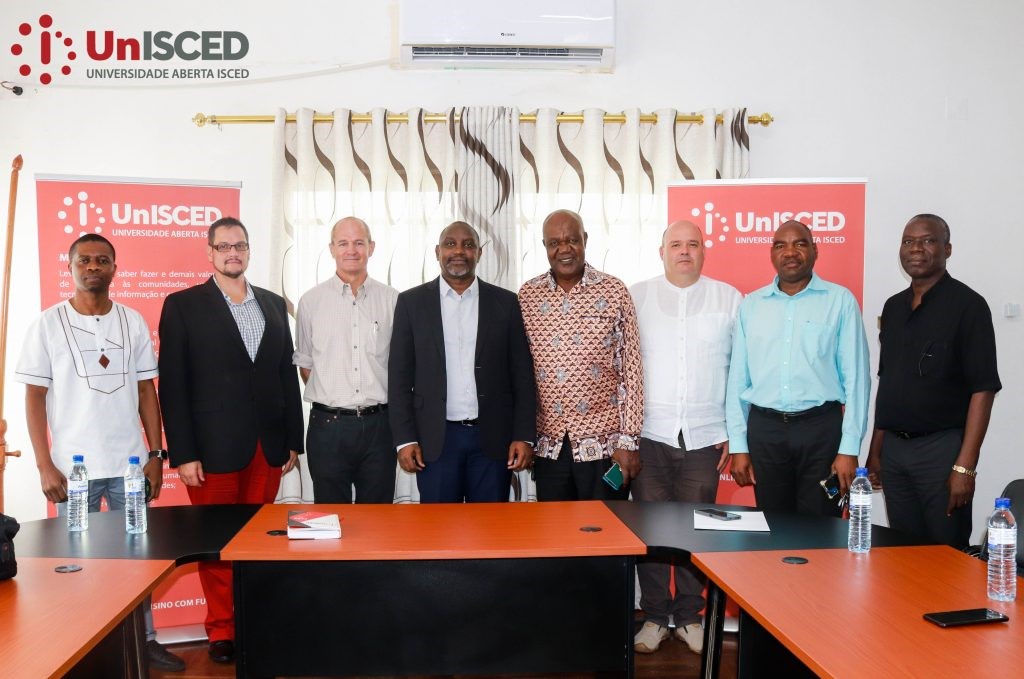

As part of Saide’s OER Africa initiative, Ashton Maherry (Saide) and Neil Butcher recently visited UnISCED to establish a partnership to promote the use of Open Education Resources (OER) at UnISCED. UnISCED (translated as Open University Institute of Sciences and Distance Education) is a Mozambican private higher education institution dedicated exclusively to open and distance education and was established in 2014.
The current William and Flora Hewlett Foundation grant in support of OER Africa, continues its focus of supporting effective development and use of OER in higher education systems in African universities. The project has four outcomes:
The visit to UnISCED forms part of a planned collaboration with at least four Universities including, Botswana Open University, the University of Namibia and UnISCED and hopefully one other, still to be determined.
Several areas of the strategic partnership were identified during the UnISCED visit, these include the development, implementation and evaluation of policies that support the use of OERs, capacity building of senior management, academics and academic librarians to use OERs to strengthen teaching and learning, the identification of possible free or commercial online resources that can help academics with their teaching and learning materials, such as simulators and virtual labs, and the exciting challenge of translating predominantly English resources to Portuguese. In addition, the possibility of UnISCED becoming a member of the African Association of Librarians (AfLIA) was explored and will be taken forward in the next three months.

Figure 1. Representatives from OER Africa and the UnISCED.
Currently, UnISCED and Saide are in the process of finalising the Memorandum of Understanding, thereafter, the first activity will be planning a survey for UnISCED staff to identify focus areas for professional development in relation to OER. A second visit to UnISCED is planned in the next few months to finalise an institutional CPD framework. With UnISED participation, the CPD framework will be tailored to suit the needs of the university. The CPD framework for academics provides a structure for supporting staff to enhance and develop their pedagogical skills, assist them to reflect, and contribute to quality assurance of the student learning experience.
OER Africa has conceptualised the CDP Framework structure as a wheel (Figure 2), with segments delineating the professional development domains and levels of progress (foundation, established, and advanced) aligned with Bloom’s Taxonomy. Each domain is further elaborated with indicators of attainment to align with levels of progress and relevant OER materials that can be used to support the implementation of the CPD courses are made available in a linked repository.

Figure 2 CPD Framework for Academics developed for OER Africa.
Once the UnISCED CPD framework is finalised, OER Africa will facilitate an awareness-raising session on open licencing with Senior Management, followed by a training session on how to find, use and adapt OER for academics.
It is hoped that UnISCED and the other universities in the current OER Africa programme will be able to maximise the range of affordances that the use of OERs have the potential to provide, including,
However, while it's important to note that OER can bring significant value to African higher education systems, challenges related to infrastructure, internet connectivity, digital literacy, and cultural considerations must be addressed to maximize their impact. Additionally, the successful adoption of OER requires institutional support, faculty engagement, and policies that promote openness and collaboration in education.
Further information on the OER Africa CPD Framework can be accessed at: https://www.oerafrica.org/content/how-can-we-plan-professional-development-universities
See also, related research report: Continuous Professional Development strategies in Higher Education Institutions